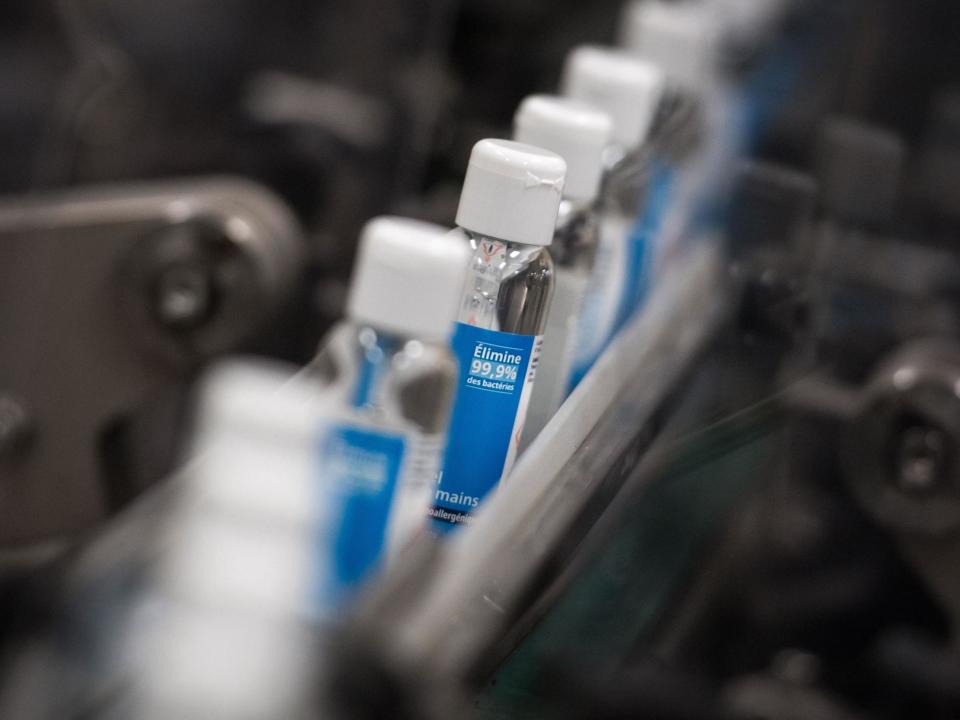Coronavirus: Surge in fake treatments sold online spark warning from UK authorities

Authorities in the UK are battling a surge in online scams which claim to treat or prevent coronavirus, as fraudsters attempt to cash in on the current climate of fear surrounding Covid-19.
The UK’s Medicines and Healthcare products Regulatory Agency (MHRA) has warned people not to be fooled by products – ranging from self-testing kits to “antiviral misting sprays” – which are being sold through unauthorised websites.
There are currently no medicines that are licensed specifically to treat or prevent Covid-19, meaning that any claiming to do so have not undergone required regulatory approval for sale in the UK.
The MHRA says it has already disabled nine domain names and social media accounts for selling fake coronavirus-related products. Five further cases are being investigated by the agency.
“Don’t be fooled by online offers for medical products to help prevent or treat Covid-19,” said Lynda Scammell, a MHRA enforcement official.
“We cannot guarantee the safety or quality of the product and this poses a risk to your health.
“The risk of buying medicines and medical devices from unregulated websites are that you just don’t know what you will receive and could be putting your health at risk.
“We are working alongside other law enforcement agencies to combat this type of criminal activity.”
The MHRA’s ongoing campaign, #FakeMeds, aims to encourage people who buy medical products online to make sure they are purchasing from legitimate sources.
It advises that all medicines and medical devices should be bought from registered pharmacies, either from the premises or online.
Other scams have seen fraudsters pose as the World Health Organisation, the Centers for Disease Control and Prevention, and other legitimate organisations, such as Johns Hopkins University, in an attempt to get people to click on malicious links and emails.
The WHO issued a warning in early February about fraudulent online activity, while in America the Federal Trade Commission (FTC) has repeatedly highlighted the risks around such scams.
Paul Carroll, chief inspector of the UK’s National Fraud Intelligence Bureau, advised that it was “important to take your time when making a purchase online and not to rush”.
“When you’re online shopping, do your research,” he told The Independent. “Read up on the website you are thinking of buying from especially if it’s not well known, look for reviews of the site, and most importantly chat to your friends and family and get their opinion before completing the purchase.
“If you decide to go ahead, use a credit card if possible as most major credit card providers insure online purchases.”
Meanwhile, a drug marketplace on the dark web has banned vendors from selling fake vaccines or cures for coronavirus.
Many sites on the dark web – an isolated section of the internet that is only accessible using specialist software – have seen a surge in useless and dangerous materials being sold with claims they could protect people from the disease.
But Monopoly Market, which lists drugs ranging from cannabis to steroids, said it would permanently remove any members attempting to peddle unproven medicines.
Suspicious products sold on the internet can be reported to the MHRA via their monitoring system, the Yellow Card Scheme.
Additional reporting by PA
Read more
Hundreds of thousands of fake coronavirus masks flooding markets
How to help the elderly and vulnerable during the coronavirus
How to feel less anxious about the coronavirus
How to be productive when working from home during coronavirus

 Yahoo Finance
Yahoo Finance 